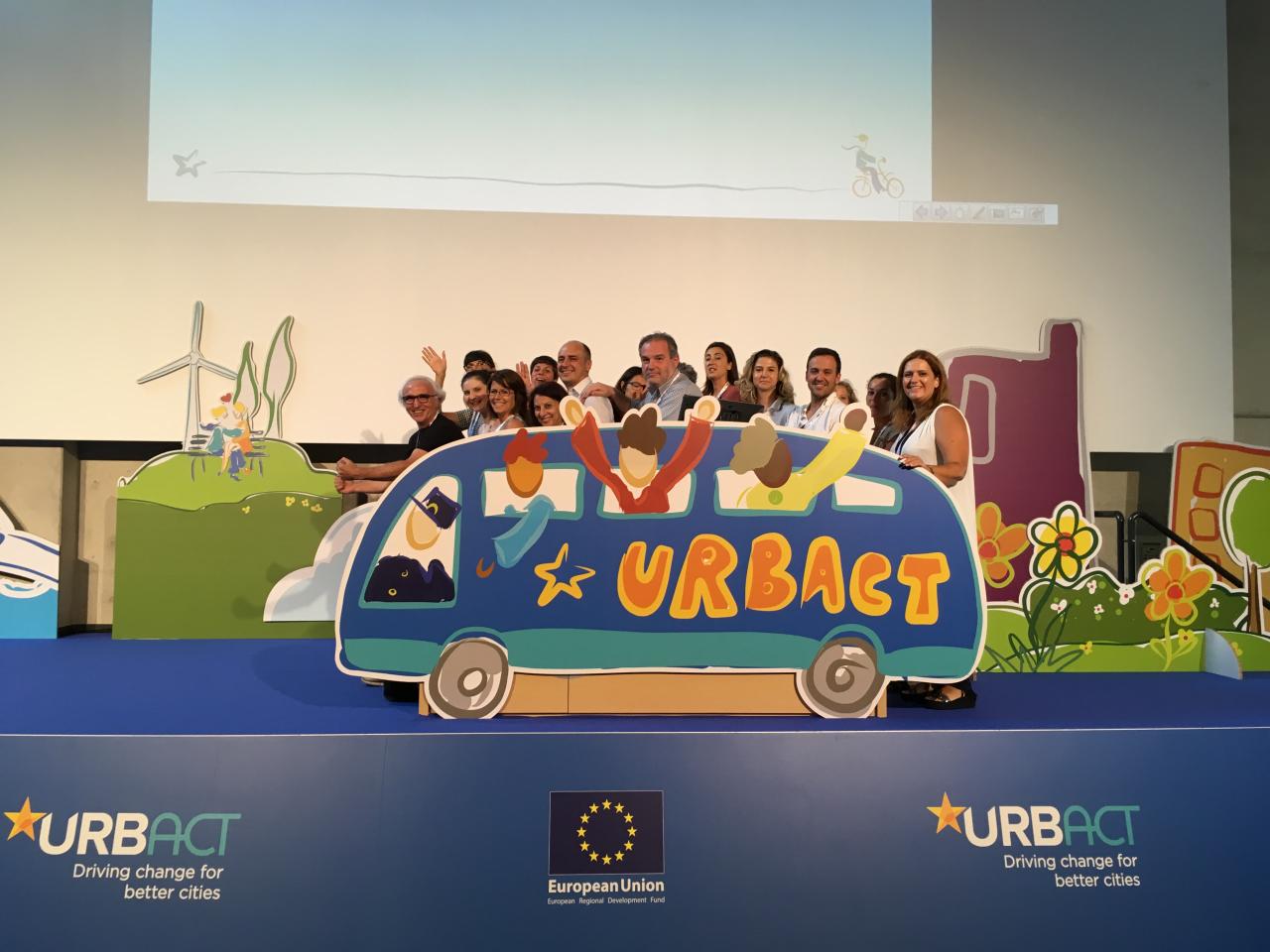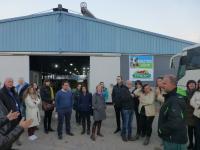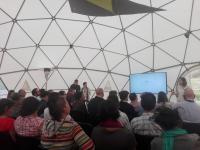
AGRI-URBAN has arrived to the end of its implementation in the frame of the URBACT Programme.
This last article is the summary of two texts included in the final publications produced by experts and partners of this Project and offers an overview of the itinerary followed during the past 30 months.
We kindly invite you to read the set of publications and videos created and particularly to benefit from the Integrated Action Plans approved by the eleven cities involved in AGRI-URBAN. All documents and videos are accessible on this website and the YouTube project page.
AGRI-URBAN, Re-thinking agri-food production in small and medium cities
During the past 30 months, we at AGRI-URBAN understood that food is no more considered just as a commodity or as a nutritional necessity; it is an emerging multidimensional policy challenge, which crosses ecological, social, economic and spatial dimensions.
Since an early stage of the project that is was clear that a sustainable and integrated urban approach was needed to deal with the main issues that must be addressed: an inclusive, coherent and reflexive urban-rural food governance system; a more solid social and physical infrastructure to reduce the distance between producers and consumers, and to promote circular economy; reliable markets for quality food producers, resulting in new opportunities for SMEs development; the need for experimenting new forms of entrepreneurship in the agricultural sector, and for creating new jobs and skills.

While the typical approach to transform cities and regions are on a scale and dimension of global governance, we at the AGRI-URBAN partnership, strengthen the importance of the local level and bottom-up initiatives. We put in practice our position as mediator, facilitator and innovator in the deployment of a local food strategy.
This leading role of AGRI-URBAN cities created opportunities for young workers to start up new business, create qualified jobs, improve their quality of life and wellbeing, strengthen their sense of belonging and integrate them into the community. We believe that now we are better prepared to understand the complexity of food system supply chains.
The original approach proposed in the Baseline Study, based on four themes: Short Circuits; Smart Land Use; Business Development of SMEs and Public Procurement, grew during the project implementation based on the work developed at local and transnational level and topics such as: skills and competences, city branding, food education, community’s platforms and others, are now part of our project.
Also, we build our findings on the borders of cross-sector linkages and hybridization between different fields (agriculture, food industry, culture, education…) and actors (SMEs, NGO, PA) with the ultimate aim of pushing AGRI-URBAN cities to find the best actions to make a change and to achieve their individual visions.
Food is definitely an urban challenge. International agencies (such as UN, OECD) underline the need to connect research and policy around an innovative and more integrated sustainable food security agenda, and stress the central role of local authorities. Small and medium size European cities are playing a leading role in this urban challenge.

The experience of AGRI-URBAN
The AGRI-URBAN Project established at the beginning as conditions of success in its performance, the satisfactory cooperation between the actors and the capitalization of knowledge as a competitive advantage. The vitality of the network of cities and the contact with other initiatives have allowed to reach a high degree of knowledge and a good application of it that has been expressed in the concrete content of the Action Plans that each city has created.
The implementation of the dozens of actions included in these plans should make it possible to achieve positive impacts on local food systems, from the three levels of analysis described in the Baseline Study delivered at the beginning of the Project.
This is how we understand it from the analysis of the sociocultural impact, after confirming the positive effect of the survival of traditional trades, often based on the concept of common goods, as evidenced by forestry work, fishing, honey extraction, processing of bread, the conservation and recovery of cultivated biodiversity. All these practices reveal a treasure of knowledge and unique hallmark in Europe.
From the point of view of economic sustainability, the actions resulting from the project and embodied in the corresponding Action Plans, highlight the integration between actors that articulate hubs, holding cooperatives, promoting brands linked to local production or creating cooperation strategies between sectors complementary to food, such as crafts or tourism.
Finally, relevant proposals of the Action Plans created by the eleven cities associated with AGRI-URBAN, are connected with the conservation of agricultural soils, the promotion of ecological production or the mixed nature of agricultural or forest spaces, elements that help determine the overall quality of the environment.

The AGRI-URBAN Project has shown its strength from several axes that support its differentiated approach:
- The rural-urban connection. The character of small and medium cities of the network, many of them immersed in policies of double rural-urban scope, presents an enriching dimension to approach the territorial food systems from this duality. The formal connection between the two policies at European level would undoubtedly facilitate this relationship. A regional framework must undoubtedly be promoted to ensure a sufficient space for action. A decision-making about facilitating mechanisms in conjunction with other sectoral bodies (health, employment, education ...) can be equally positive.
- The potentially activating factors that AGRI-URBAN highlighted in its initial analysis are being critical in the evolution of food systems. Access to land, short circuits, local entrepreneurship and public procurement are instruments among others, which are confirming their importance to bring about change. Without doubt, new factors (e-commerce, shared food, food justice, sustainable diets, waste reduction...) are also positioning themselves as relevant to achieve the implementation of more sustainable systems and must be taken into account.
- The fall in agricultural employment and the aging of farmers draw a pessimistic scenario, with a negative trend that does not show any course variations. In short, the creation of employment in the agro-food sector remains an outstanding opportunity rather than an obvious reality, even though some initiatives show green shoots in this worrying global panorama.
Expectations remain high when discovering how the needs of ensuring a healthy and sufficient food for the population, are confirmed as a challenge of the first order, while a sustainable use of resources is marked as an unavoidable challenge to ensure the future of the planet.
The Action Plans, like the ones deployed by the cities of the AGRI-URBAN network, represent a precious instrument at the service of European cities, which, however, cannot assume alone a challenge of such magnitude. Therefore, we can affirm that AGRI-URBAN has successfully completed its task of rethinking food systems from the perspective of small and medium-sized European cities, to conclude that a re-invention of the complex food system is necessary from a multi-level, involving all the structures concerned. A new balance between the solutions dominated by the focus of production or consumption, quantity or quality, should be able to replace the current unsustainable vision with another of a holistic nature. This is the last recommendation that the AGRI-URBAN network aspires to put on the table of political debate concerning the European urban and rural development.

